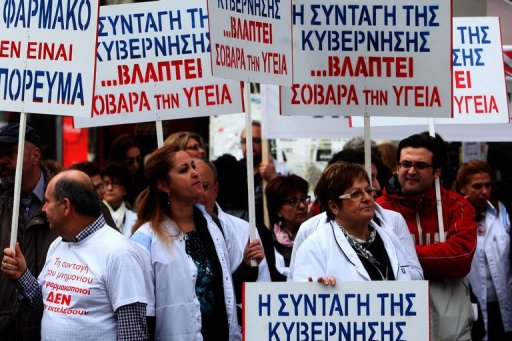European finance ministers regroup in Brussels on Monday for two-day talks focused as much on EU-wide problems installing cross-border banking supervision as on eurozone bailouts.
After a string of emergency Eurogroup gatherings that finally resulted in a deal last week to get Greece’s bailout aid back flowing after months in limbo, Monday sees a return to routine among the 17 states that share the currency, from 1600 GMT.
The meeting then opens up Tuesday over breakfast to include the other 10 European Union states, with the focus on divisions between the two types when it comes to strengthening banks’ capital requirements and introducing a single supervision regime.
After Germany’s parliament gave its overwhelming approval Friday for billions of euros in aid, a top eurozone official said Greece will announce Monday the terms for investors to take up a controversial debt “buyback” underpinning bailout resumption by December 13.
The official, who cannot be named, said the eurozone would watch “with great interest,” after the International Monetary Fund said its continued bailout participation would be contingent on results.
Tens of billions of euros in Greek state debt still held by the private sector, mainly Greek banks and insurers, is in play; the idea being that Greece is loaned money to repurchase commercial debt at lower prices.
The buyback is a cornerstone of the agreement to release some 43.7 billion euros ($56.7 billion) in rescue funding by March, but according to the Institute of International Finance, the powerful bank lobby that has already written off 107 billion euros owed, “uncertainty remains.”
Eurobank analysts have said the target reduction overall is 17 billion euros.
If Greece will be about a launch, a planned bailout for neighbouring Cyprus will be about ministers assessing a draft agreement on parameters also for about 17 billion there in funding drawn up by the EU and the IMF.
This is not expected to mature into concrete loans until into the New Year.
However, the other two eurozone bailout recipients to-date, Ireland and Portugal, are not looking for parity with another aspect of last week’s multi-faceted Greek deal — interest relief.
Preparations for Spain to recapitalise its banks using eurozone loans will also be checked, with disbursement expected “fairly rapidly.”
The relationships between state debt, bank losses and moves to re-shape a European financial sector fit for a post-boom age of recession and suppressed recovery are the subject of rather more complicated talks Tuesday.
This is about policing the banking sector more effectively, but only gradually from September next year.
New safeguards are part of wider moves towards fuller economic and political integration judged necessary to break the vicious circle driven by the debt crisis that brought the European economy to a standstill.
These will reduce the role of the London-based European Banking Authority, only set up in the wake of the 2008 global financial crisis.
Proposed designs for the new regime have met with opposition particularly from the non-euro global financial centre of the City of London.
Ideas will be considered by ministers to get round problems where decisions ordered by the euro ‘Fed,’ the European Central Bank, are seen as unwelcome in non-euro jurisdictions.
This is essentially about voting rights when disputes arise between the ECB, at the apex of the new system, and sometimes non-euro national watchdogs whose powers will be further eroded.

COMMENTS
Please let us know if you're having issues with commenting.